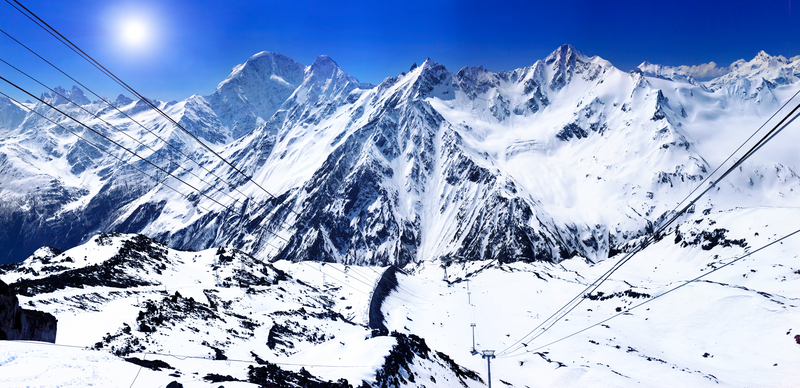#SochiProblems? More like #USProblems

It seems that the 2014 Winter Olympics will be about as famous for its failures as its successes. But not just in sports. The news has found a way to point out every little flaw in the the Games since before the Games began.
When one ring of the Olympic symbol failed to open during the opening ceremony, journalists made it sound like not only was it the end of the world, but that it was proof that Russia couldn’t handle the Olympics. There is even a Twitter account and separate hashtag established — @SochiProblems #SochiProblems, respectively — that detail all the little problems people have encountered in Sochi. Colored water, locked doors, holes in walls. You name it, it’s probably a #SochiProblem.
Granted, there have been a lot of problems in Sochi, and in Russia as a whole. But let’s explain how and why they became problems. First of all, people have been up in arms over Russia’s anti-gay laws. Now, I support gay rights wholeheartedly, but keep in mind that these anti-gay laws as well as Russia’s position on Syria do not reflect the ideas of the whole nation. A country’s entire population should not be blamed for the actions of its government, but it seems that most people formed rock-solid opinions about Russia before the games began.
And about the construction issues. Many hotels and crews were simply not ready for people to come in yet. Starting construction too late, they had to scramble to make things presentable. Of course, they should have been ready, and issues that threaten the health and safety of athletes and spectators are inexcusable, but as the whole world watches, we could make less of a deal of the things going wrong and more of a deal of the sports events.
For example, one of the Olympic rings didn’t open when it was supposed to during the opening ceremony. A simple mistake, and one that could have happened to any crew in any country at any event of this grandeur. What about the other rings that did open into snowflakes? That’s pretty cool.
What about all the athletes coming together in solidarity and celebrating each other before the competitions? All this was lost on some people who were so hung up on little mistake.
All these problems have been meticulously hashed out by regular citizens and journalists alike, who I had hoped possessed at least an ounce of journalistic integrity these days. The @SochiProblems account seems to be used by more spectators than anyone, but as I was scrolling the account and the hashtag feed, I saw that news commentators and journalists were supplying pictures of their own. Seriously, what happened to respect, if only for yourself? Not only are these people embarrassing all Russians and everyone involved with the Olympics, but they are making fools out of themselves. And the problem with publicizing information on social media is that it finds a way to last forever. Even if the account is deleted, there’s an exorbitant amount of proof that it happened. Imagine people in Russia scrolling through Twitter, to see one of their towns, and thereby their entire people, ridiculed as the laughingstock of society. Imagine one of your children asking you why #SochiProblems ever happened. What are you going to tell them? Imagine the Olympians who have worked so hard to achieve their dreams, but people find the hotel water more interesting than their performance.
The United States of America, as one of the major world powers, has an opportunity to show support of other nations, and to strengthen a bond that has long been unstable. Instead, we squandered it with prejudice, indifference and petty hang-ups. So regardless of who takes home the most Gold, who really won and lost out there? The struggling southern resort town who didn’t quite perform under pressure? Or the observing countries who acted as immature as possible under the circumstances? This winter, I’m proud of the athletes, but that’s about it.









You must be logged in to post a comment Login